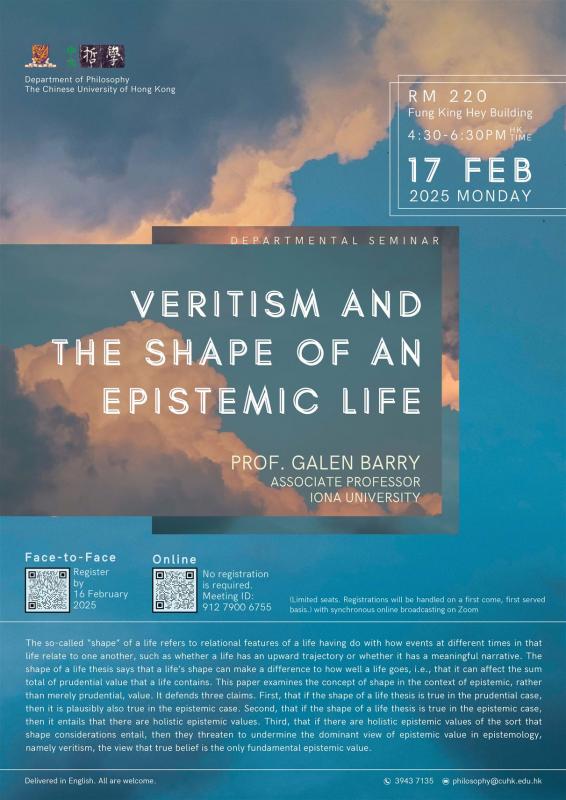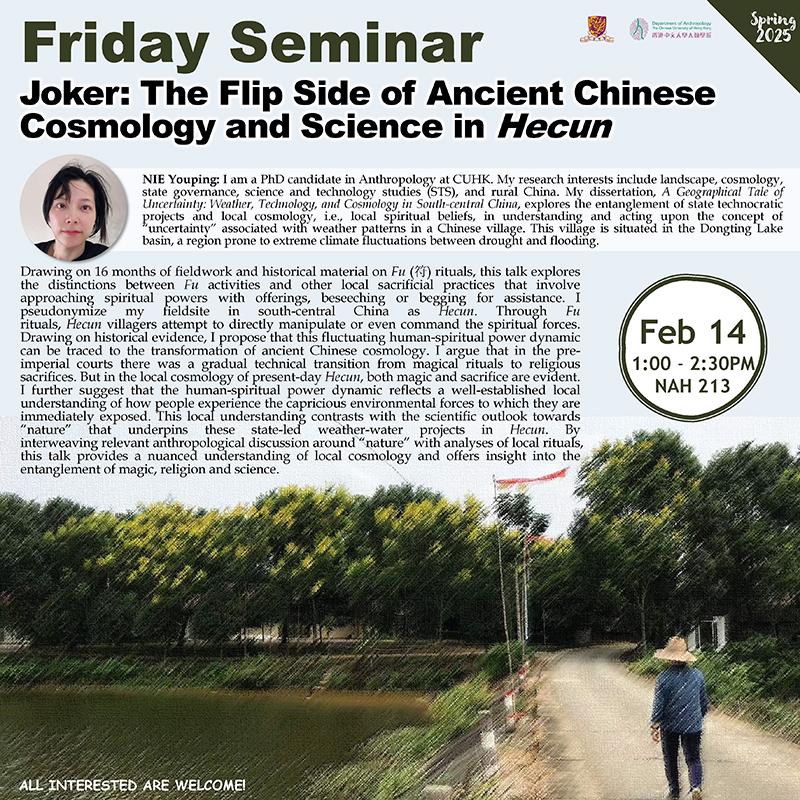
The so-called “shape” of a life refers to relational features of a life having do with how events at different times in that life relate to one another, such as whether a life has an upward trajectory or whether it has a meaningful narrative. The shape of a life thesis says that a life’s shape can make a difference to how well a life goes, i.e., that it can affect the sum total of prudential value that a life contains. This paper examines the concept of shape in the context of epistemic, rather than merely prudential, value. It defends three claims. First, that if the shape of a life thesis is true in the prudential case, then it is plausibly also true in the epistemic case. Second, that if the shape of a life thesis is true in the epistemic case, then it entails that there are holistic epistemic values. Third, that if there are holistic epistemic values of the sort that shape considerations entail, then they threaten to undermine the dominant view of epistemic value in epistemology, namely veritism, the view that true belief is the only fundamental epistemic
Speaker
Prof. Galen Barry
Associate Professor, Iona University
Tel: (852) 3943 7135
Fax: (852) 2603 5323
Website: http://phil.arts.cuhk.edu.hk/


